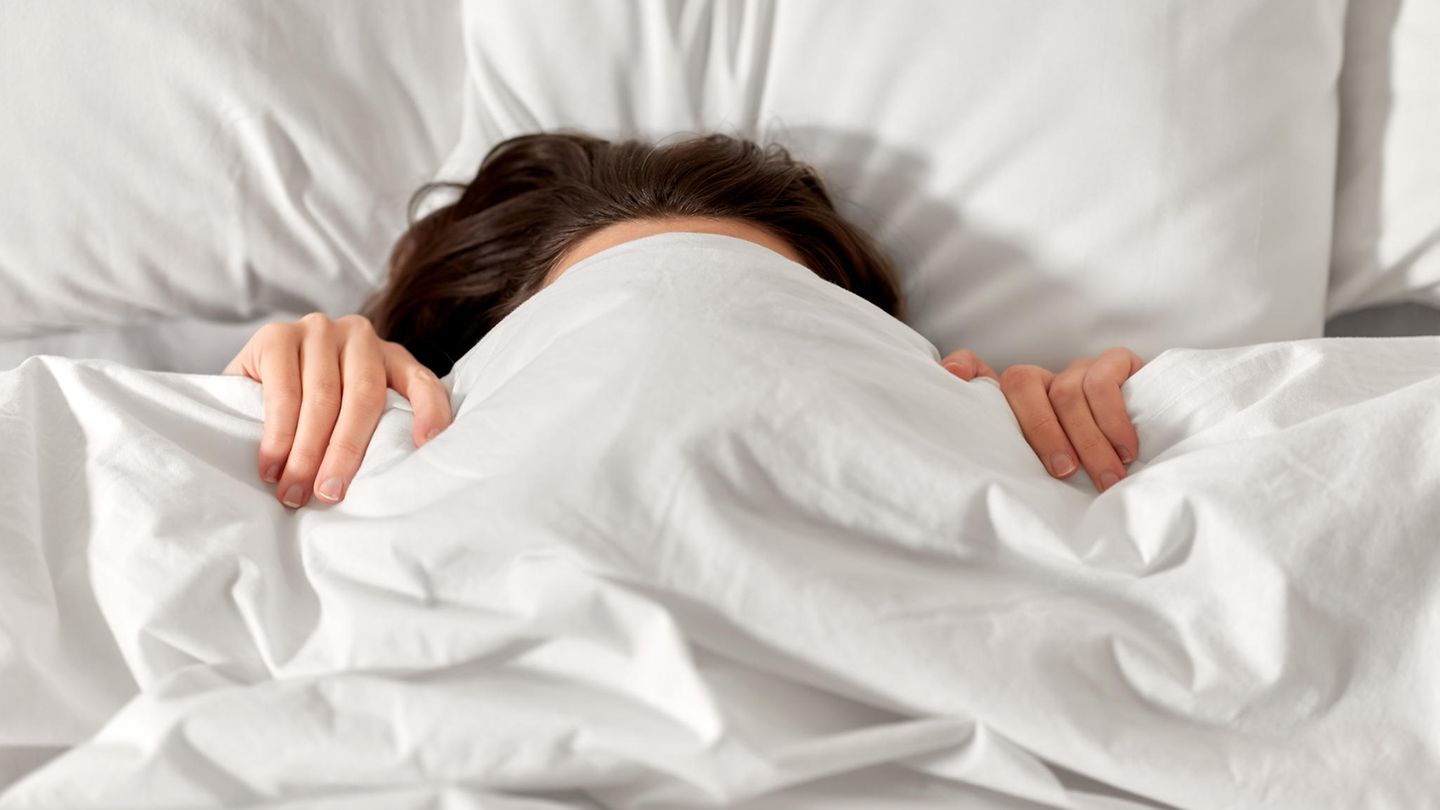Just pull out of everything? “Bed rotting” seems to be the solution – and in the end offers its own stumbling blocks.
TikTok is a place where many very different things can come together: alongside dance videos (which is where the social media platform once started), there are now political tirades (from far left to far right), DIY instructions and life hacks of all kinds of useful things – and meaningfulness. These include more and more tips on the subject of mental health and self-care.
One of the countless viral trends of the app is the so-called “bed rotting” (roughly translated as “rotting in your own bed”), which is intended as a strategy to escape from the problems and numerous demands of everyday life. Psychotherapist Amy Morin warns that this is not just healthy in an article on “Psychology Today” – and she is not alone in this.
TikTok app can be dangerous
Dealing with the topic of mental health is a bit ironic, as the app itself can make a significant contribution to mental health U.Ncontribute to health, depending on how it is used. In 2022, data journalists from Bayerischer Rundfunk found in an experiment that people who are interested in videos about depression, self-harm and suicidal thoughts hardly ever see anything else suggested in the app feed after a short time.
These included videos that deal constructively with the topic of mental illness, but as psychotherapist Anke Glaßmeyer warns in an interview with the “Tagesschau”, it is always very important how a sensitive topic such as suicide is discussed: “The more targeted and detailed the reports on suicides are, the more likely it is to imitate them.” People who are in a mentally unstable state could be triggered by the videos.
So everyone should enjoy and view the mental health and self-care videos on TikTok with a healthy dose of skepticism – After all, it is not always immediately clear who is reporting on the topics (expert or layperson) and how and with what intention (constructive or attention-getting) this is done. Just like in the viral “bed rotting” trend.
What “bed rotting” is all about…
Anyone who “rotts” in bed basically does nothing but spend the whole day in their own bed. But instead of sleeping, this person indulges in other invigorating activities, like scrolling through the Instagram feed, watching TV shows — or the simple but popular staring at the ceiling. In a TikTok video, sleep researcher Vanessa Hill is positive about the trend: “So many of us are tired […]because we feel pressured to do everything, and trends like bed rotting aren’t really about wasting the days in bed.” Instead, the goal is to allow yourself to be okay, to do less, according to the scientist.
At least the statistics does not contradict the first part of your statement: According to this, the number of cases of incapacity to work due to burnout has been consistently high for years and, above all, the number of sick days has increased enormously (in 2005 an average of 13.9 sick days, in 2020 the AOK registered an average of 141.8 days per 1,000 members). Burnout has long ceased to be a “fashion disease”, but the consequence of a time that demands people to do more and more and faster. But is “bed rotting” the solution?
… and what experts think of it
There is hardly anything wrong with withdrawing from the stress of everyday life for a while when you are very exhausted – on the contrary: It is incredibly important that we listen to the signs of our body and our psyche (no one else will believe that). Whether it is a solution to more or less hide from the world in your own bed for a longer period of time can at least be strongly doubted. The psychiatrist Dr. In an interview with “CBS News”, Rishi Guatam is at least very skeptical and warns of health consequences: “It can worsen general health by increasing the risk of obesity and cardiovascular disease.” “Anyone who notices that he:she is taking a long time to recover should take that as a sign that other problems may be at hand,” Guatam said.
Ryan Sultan, assistant professor of clinical psychiatry at the Irving Medical Center/New York State Psychiatric Institute at Columbia University, sees it similarly in an interview with the health magazine “Health”. It could be a sign of depression if “bed rotting” becomes part of everyday life.
Lying in bed is wasting time that would be better spent with friends or loved ones, Courtney DeAngelis, a psychologist at NewYork-Presbyterian/Columbia University Irving Medical Center, warns in an email to Health. . In addition, leaving assignments from work or university behind can cause even more stress.
Last but not least, the psychotherapist Morin warns in the “Psychology Today” article that staying in bed for a long time can also have a negative effect on the sleep rhythm. “It’s important that you associate your bed with sleeping and not with a place where you can work, eat or just stay awake.” Otherwise, the therapist says, we would train our brain to stay awake when we are in bed.
In summary, “bed rotting” is an understandable consequence of a time when it seems to be good form for some people to work themselves to pieces. However, permanent withdrawal can have undesirable negative consequences for the individual. It seems more effective here to go into the actual problems and find a solution instead of avoiding them, snuggled up in a warm bed – as tempting as that may be.
Sources used: tagesschau.de, deutschlandfunknova.de, health.com, psychologytoday.com, cbsnews.com, tiktok.com, de.statista.com
